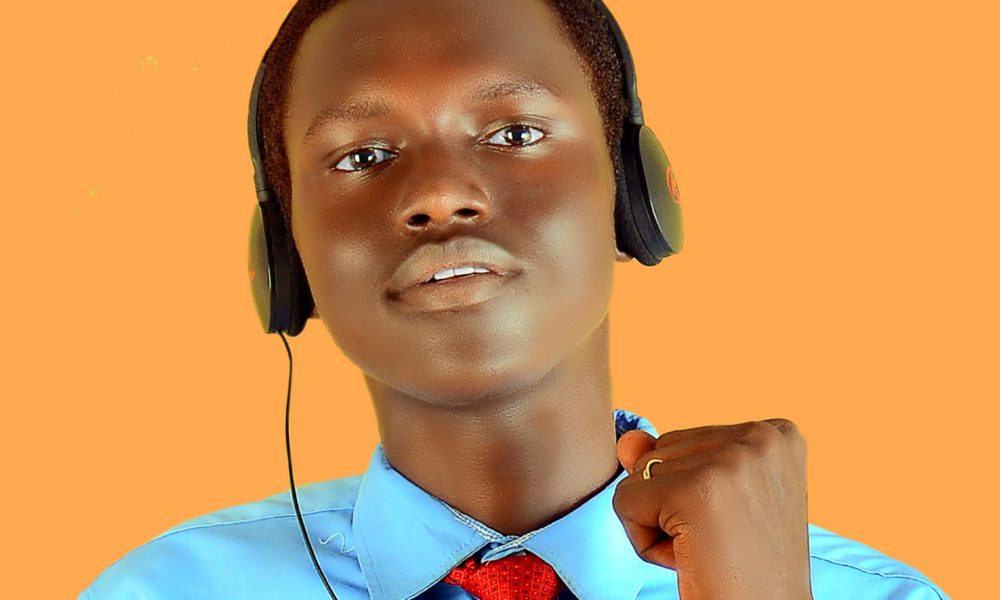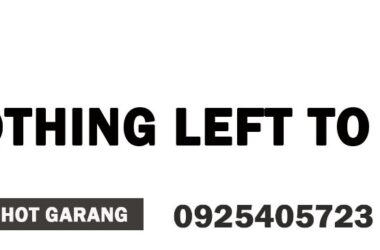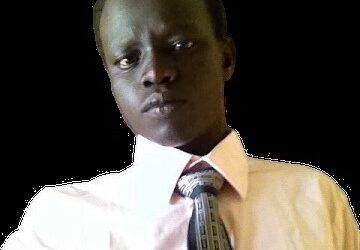By Steady Ayuen
Why do you think we need peace? Just take a deep breath and think about it a moment. who can bring peace to this country and how can peace become our weapon instead of gun?
Peace is a concept that has been sought after by individuals, communities, and nations for centuries. It is often viewed as a state of tranquilly, harmony, and the absence of conflict.
However, achieving a true understanding of peace goes beyond these simplistic definitions. A real understanding of peace begins with recognizing that it is not just the absence of violence or war but also the presence of justice, equality, and respect for all individuals. It is about creating an environment where people can live without fear, discrimination, or oppression.
A real understanding of peace also requires acknowledging and addressing the interconnectedness of global issues. Challenges like climate change, poverty, and terrorism cannot be solved in isolation. They require international cooperation, collaboration, and shared responsibility.
Peace is not a passive state but an active process that requires effort, dialogue, and cooperation. It involves addressing the root causes of conflict, such as poverty, inequality, and social injustice. It requires building strong institutions, promoting inclusive governance, and ensuring the protection of human rights.
South Sudan, a young nation that gained independence in 2011, has been plagued by internal conflicts and political turmoil since its inception. One of the major challenges the country faces is its constant thirst for peace.
Although peace has become our daily word due to the current situation in our country, Some people use it to blame others, While others use it to honour the rights of other people. Our leaders use it during rallies to refer to their cooperation, unity, and harmony among themselves.
This word is commonly used by students to refer to freedom from disturbances and cooperation not only among themselves but with their stakeholders as well.
Peace is also often used by religious leaders to refer to the kindness, love, and mercy of the divine power or supernatural being known as God or Allah. There are many ways to use the word peace in other languages. It can either be used to say a greeting or a goodbye.
Furthermore, let’s dive deeper to really figure out what the word peace means. According to Wikipedia, peace is a concept of societal friendship and harmony in the absence of hostility and violence.
According to Wikipedia, the term “peace” originates mostly from the Anglo-French “Pes”, and the old French “Pais”, meaning “peace, reconciliation, silence, agreement” in the years of the 11th century.
However, the term itself comes from the Latin Pax, which means “peace, compact, agreement, treaty of peace, tranquility, absence of hostility, and harmony.” It became popular as an English word used in various personal greetings in BC 1300 as a translation of the Hebrew Word Shalom, which according to Jewish theology comes from a Hebrew verb meaning “to be complete, whole.” Although peace is usually translated, it is incomplete because Shalom has multiple other meanings in addition to peace, including Justice, good health, safety, well-being, Prosperity, equity, security, good fortune, and friendliness.
But in a social sense, peace is commonly used to mean a lack of conflict (such as war) and freedom from fear of violence between individuals or groups. Peace also means development.
Going back to the ancient world, the Dove and the Olive Branch were the most common symbols associated with peace. This is simply because of the piece made by the Supreme Divine Power and mankind after the destruction of the world by flood Waters.
Peace, however, according to me, is the freedom that begins within oneself before stretching out to other people. Ask yourself, Are you peaceful? This question will help you explore ideas and make good decisions about peace. If the answer is no or you are not sure about it, then please make peace with yourself. Create a universe for peace within yourself, and this will help millions of people who are looking for it. Remember, when you are emotionally unpeaceful or agitated, you do not have a space to create and develop peace.
You are not ready to save lives and end the bloodshed. You are not ready to take good care of your family. Peace is just like charity; it begins within you, within a family, and does not end there. However, to remove the emotions of hatred, egoism, and pride within oneself, one must start it within a family. Peace requires a heart full of positive thinking to change the world.
However, psychological peace is very important. Before approaching your neighbors to tell them about it, build it yourself because you’re the master of your emotions and psychology. In this context, we’re going to look at the kind of peace that South Sudan has been looking for since the early years of the Liberation struggle and the Civil Wars that erupted and engulfed the nation after the liberation movement.
It is the kind of peace the world has been searching for; this dates back to the years of the Taliban-Afghan war in Afghanistan, the years of the Syria war and the Al Shabaab conflict in Somalia, the M23 rebels in DR Congo, and the Russia-Ukraine war.
I suppose this is the kind of Peace everybody is looking for in order to survive, thrive, and get going with the life they deserve. An environment where there’s no heartrending gun sound is pretty cool for human survival because it calms stress and builds up trust and care within an individual. Now that the world needs peace, who, according to you, will bring peace to the world? Or is it none of your business? Human rights and freedom aren’t for one person. Do you think it’s the leaders or the armies? None of them can bring total peace to the world except when you are willing to adopt peace as a weapon to react to other people. Everyone in South Sudan has been calling out louder for peace to come, and do you know why it has lasted longer? As we exclude ourselves, thinking only leaders can materialize peace or claim that they are the only ones to bring peace, that’s the wrong mindset.
We, as the people of South Sudan, leave peace within ourselves and go out searching for it, yet to build trust is what peace is, to keep laws and orders, and to bring the wrongdoers before the court of law. It’s not something we can smell, touch, or see, but sometimes we can feel it in its realities.
Peace is part of our hearts that values the freedom and rights of others. It’s not just the responsibility of leaders, although they play the most important roles in the implementation; without the masses, there are no leaders, and without leaders, there are no masses. This means that without our leaders, we are nothing, and without us, our leaders are nothing. Therefore, in order to bring our country to peace and justice, we must cooperate among ourselves regardless of our origin, tribe, or language, but as one people of South Sudan.
We are the flag bearers of our country; we should stand by our leaders and give them the support they need to run the country peacefully since we are approaching the elections. We need to unite as one people, regardless of parties, interests, or political differences. In order to have a free and fair election, people do not stand by their leaders of choice but by their country. And when people choose their leader and fail to listen to how they should push the country, then that is totally nothing.
We must come together and work together as a country, putting aside our cultural, political, and religious differences. In ancient history, only a few countries managed to create long periods of peace. the Isolationistic Edo period, also known as the Tokugawa Shogunate in Japan, from 1603 to 1868 (a period of 265 years), which is the longest period of Peace in history, followed by Pax Khazarica.
In Khazar Khanate, south-east of Turkey, which took place about 700–900 AD, making a total of 250 years, and lastly, the Pax Roman in the Roman Empire currently known as Italy also lasted for 190 or 206 years.
Why can’t we create such a period of joy and happiness in our country? It is very simple for all of us when we give our hearts to serving our nation and stop the power to shed the blood of other people by saying no to guns and yes to peace.
For decades, South Sudan has struggled with a history of violence, ethnic tensions, and a lack of trust between different communities. The civil war that broke out in 2013 further exacerbated these issues, resulting in a humanitarian crisis with millions displaced and thousands killed. The thirst for peace in South Sudan is palpable. The people are tired of living in fear and uncertainty, and they long for a stable and peaceful country where they can rebuild their lives. The people of South Sudan need peace this time to create a lasting coexistence and legacy. They need the freedom to participate in the development of their country.
During the period of the liberation struggle from 1983 to 2005, We, as the people of South Sudan, have learned from the consequences of the civil war that erupted as a matter of struggle for liberation and freedom. The number of lives lost as a result of the Civil War in 2013 and tribal disputes in our country is more than enough. Thousands lost their lives, and millions of people were displaced. In 1983, as our leaders planned and rebelled to liberate this country because of the freedom of their people, they fought for freedom from deliberate torture and equal participation of the people in the government.
They did not fight because they are against peace; perhaps they did not want to control the resources, but that was not the main reason that engrossed them in the fight. They fought for the freedom of their people to do what they felt like doing without restrictions or sanctions. Nelson Mandela is one of the considerable personalities to be compared with John Garang De Mabior because they had the same goal before being regarded as Heroes.
The Discrimination of people according to color and tribe was the enemy of neither the Arabs nor the whites, and these leaders fought with blood, tears, and sweat to tell the world that there is equality and freedom. Though Arabs and Africans were not enemies but best friends, the evils of discrimination and slavery separated them during those days.
There were many restrictions and sanctions, and people couldn’t do what they felt like doing. The reason for the defections of the Southern Sudanese people was hatred and mistreatment from the government of the day. The Arabs went to the point of saying we could not share a table with that part of mankind.
Nevertheless, we struggled, and our leaders didn’t give up because they needed Peace and Freedom for the people. The struggle for this Peace and Freedom lasted for 21 years, 7 months, and 4 days, from June 5, 1983, to January 9, 2005. If you go back to history and research what John Garang and Salva Kiir were doing in the bush, I think they did not want to give up the fight because they were not happy seeing their people suffering at the hands of Arabs.
The same applies to Nelson Mandela, the ANC, and the people who were antiapartheid fought for a longer period from December 17, 1950, to April 27, 1994, which was 43 years of struggle in order to achieve lasting peace and freedom, but the leaders and the people of the country must commit to working together with all their hearts and souls because this is the freedom and the growth of the younger generation that is coming after us.
Since the last civil war in South Sudan, efforts toward achieving peace have been made, including the signing of the Revitalized Agreement on the Resolution of the Conflict in South Sudan (R-ARCSS) in 2018. This agreement aimed to end the civil war and establish a power-sharing government. The president is working so hard to make sure that all the terms and conditions of the agreement are in place.
The international community has been actively involved in supporting the peace process in South Sudan. The United Nations, IGAD, other regional organizations, and other stakeholders have provided mediation, peacekeeping forces, and humanitarian assistance. Despite these efforts, the road to lasting peace remains challenging. The key to maintaining peace is investing in education. Education and awareness are vital to fostering a culture of peace and tolerance in South Sudan. Investing in education, particularly for the younger generation, can help break the cycle of violence and build
The thirst for peace is not limited to the people of South Sudan; it is shared by the entire region. The conflict has had a destabilizing effect on neighboring countries and has the potential to ignite further violence if left unresolved. The international community must continue to support efforts to bring peace to South Sudan and ensure that all parties are held accountable for their actions. People have to work cooperatively to serve the nation. Since this is a state of living well together instead of Justice or goodness, a balance or equilibrium of people, the people of South Sudan must come together and create a universe for themselves, set a common goal, and that is moving forward, not backward. We have to close the door on retardation and never undergo any form of violence.
I once told a reporter on television that it is our choice whether we need peace or not, but the best choice is peace and the freedom it will bring. It was the mantra I repeated to myself every day. In addition, I told them as an assurance that peace is how we do things in the country. The more we mistreat our fellow South Sudanese, the more violence increases within our boundaries. We have to unite as people and as a country. This is the time to make peace and solidarity priorities by developing patriotism and nationalism. When there is peace, everything becomes easy, including the economy.
Let’s fight for peace and stability by accepting our role as patriotic citizens and being ready to work cooperatively to serve this great country with all our hearts and cooperate with the government. In conclusion, the thirst for peace in South Sudan is a cry for an end to violence.
God bless South Sudan! God bless Africa! Long live South Sudan!
The author, Poet, Motivational Speaker and Peace Activist
The Chief Executive Officer of Peacepedia Youth Network
He can be reached via email: steadyayuen@gmail.com Or contact +211924447405/ +211980261097




